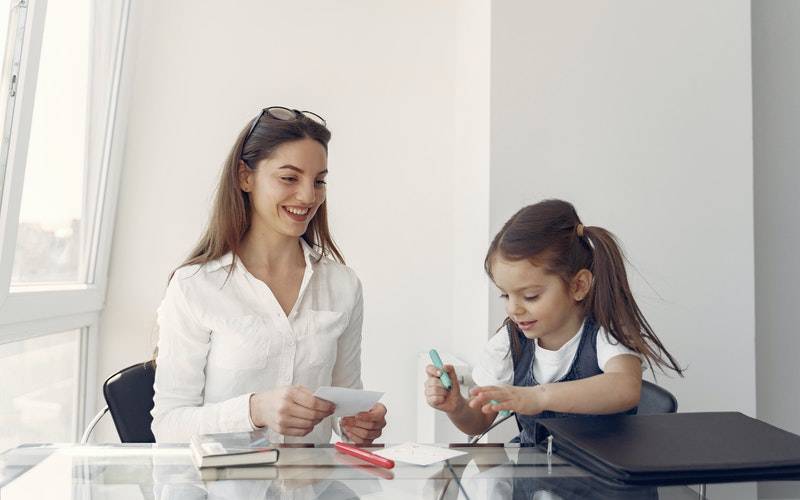Games and activities to help children in Reception developing speech and language.

Vocabulary games and activities for EYFS
An award-winning collection of games and activities and it has a dedicated EYFS section. It links directly to the EYFS curriculum Development Matters and has a range of games to work on speech and language acquisition. During COVID-19, they are offering a month’s access for £1:
- Help kids learn with Busy Things for families (Busy Things website)
A free PDF with activities for the classroom including a dedicated section for EYFS. Page 19 has a list of quick activities that you can play as a family:
- Download Closing the word gap: activities for the classroom - Primary EYFS, KS1, and KS2 (PDF, 2.5 MB) on the Teachitprimary website
A wonderful family-based activity. You need to source the stones, decide on characters and get creative together. They can support vocabulary development by developing narratives for each of the characters, working with older siblings means that language is modelled for a younger child to engage with. This website offers some ideas as to how to get started:
- The Essential Guide On How To Use Story Stones (Early Impact website)
Dressing up games are a great way to explore a range of vocabulary, this can be done using mum and dad’s clothes, fancy dress or using cut outs:
- Let’s Get Dressed Game to Teach Possessive ‘s’ (Teaching Talking website)
Practice vocabulary in a range of different situations:
- 10 Ways to Play 'I Spy' (Teaching Every Day website)
Nursery Rhymes are great to sing in the car or waiting for school to open, if you are not familiar with too many, then this website has lots of illustrated nursery rhymes so you can pick a few each week and print them off to share and sing:
- Nursery Rhyme Printables (PreKinders website)
TV shows that place an emphasis on learning new words and repeating them can be useful as some down time. BBC’s 'Something Special' teaches key words and their Makaton sign and uses these new words throughout the show, all with the lovable Mr Tumble and Justin:
- Something Special (BBC website)
Other communication and interaction needs in EYFS
Attention
Musical statues can involve the whole family. Dress up and put on some favourite tunes whilst also supporting a younger child to develop attention skills by listening carefully to when the music stops and ‘freezing’:
- Game of the Week: Dance Freeze (Playworks website)
Ideal to work on attention skills as well as a whole host of communication and language skills. This is a fun craft activity that can then be used in imaginative play across the day:
- Super simple listening game and craft for kids (kidsactivities website)
Comprehension
Reading and sharing books together is a wonderful way to develop comprehension skills. Instead of reading the words, why not look at the pictures and ask your child to tell you what they think is happening, likely to happen next or how someone feels?
Offering chances for children to create their own narrative can then translate to their play. There is an excellent resources guide for parents:
- Resources (The Communication Trust website)
Turn Taking
Doing things on a larger scale can be really fun for younger children and older siblings can play a part on leading the creation of the game.
This link shows how to create a matching game which can develop turn taking and attention skills:
- Paper Plate BIG Alphabet Memory Game (frugal fun for boys and girls website)
 Close
Close

